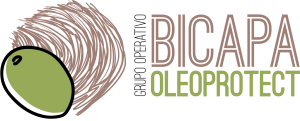Olive groves optimized by implementing improved Double-layer Anti-weed Non-Woven

En DNT Non Woven Fabrics apostamos por una mejora continua del rendimiento del olivar mediante nuestro producto Malla Antihierba Bicapa, formando parte del grupo operativo Bicapa-Oleoprotect, un proyecto para optimizar el cultivo de nuestra tierra, el olivar.
Main objective:
Optimize olive grove management by developing and implementing a non-woven anti-weed double layer, adapted to the production conditions of traditional, intensive and super-intensive olive groves.
specific objectives
To meet this general objective of Bicapa-Oleoprotect, the following specific objectives have been established:
- Achieve efficient use of water in olive groves, reducing the evaporation of water contained in the soil.
- Verify the increase in water available for crops by installing humidity sensors under the double layer fabrics and also in the control area.
- Design of the ideal double layer arrangements, adapted to each production framework.
- Increase olive and oil production in the plots where the double layers have been installed.
- Design and optimize double layer antiweed non woven (white-black) compatible with organic farming from virgin material that has a durability in the crop field of at least 8 years.
- Design and optimize a double layer antiweed non woven (black-white) compatible with organic farming. With a recycling percentage of up to 50% that presents a durability in the crop field of at least 8 years.
- Adapt the double layer obtained to the crop field by incorporating microperforations and macroperforations that allow optimizing the harvests in the crop fields in which they are used.
- Adapt the obtained double layer to the selected crop field by modifying its surface using a hydrophilic mass treatment and/or spray.
- Reduce the weight per square meter of optimized double layer anti-weed non woven to reduce the amount of raw material used in the proposed system using lightweighting technology used in other sectors
- Incorporate the maximum percentage of recycled material in the manufacture of new nonwovens to improve the carbon footprint of the products obtained.
- Extend the durability of nonwoven fabric in all developed versions so that there is less consumption of it.
- Incorporate post-industrial recycled materials into the developed double layer antiweed non woven without reducing their durability in crop fields.
- Develop different double layer antiweed non woven materials that are competitive within the agricultural sector and adapted to each of the crops that are proposed.
- Continuous monitoring of the water status of the sensorized trees and by extrapolation of the irrigation sector.
- Using an optimal number of sensors, we can obtain the greatest possible number of diverse results that allow for the differentiation and representativeness of all farms.
- By identifying the farm typologies according to their different variables (soil type, slope, density, type of irrigation, origin and use of water). Ensuring the representativeness of all farms in terms of soil type, water origin, and irrigation community.
- Eliminate herbicide application/grass cutting.
Final results:
Con el proyecto Bicapa-Oleoprotect,se obtendrá un demostrativo de gestión eficiente del cultivo del olivar, mediante el uso de nuevos productos (bicapa no tejido antihierba). Cuantificando y evaluando el efecto de estos en el cultivo mediante el uso de sensores y gestores de datos que pongan de manifiesto las bondades de este nuevo manejo.
Stability in ground temperatures will be achieved, given the technical characteristics of the two-layer product (black layer facing downwards to prevent grass growth and white layer facing upwards to refract sunlight). Therefore, water evaporation, both from irrigation and from rain, in this case due to the application of a product with hydrophilic/microperforated treatment.
It is expected that at least the results obtained in orange, mandarin and avocado crops will be achieved, which are:
- Water savings between 25 and 40%.
- Savings in land handling: 60 – 70%
- Production increase: > 20%.
- Grass treatment/cutting savings: 40%.
Continuous monitoring using sensors and data managers will give us results that validate the application of double layer antiweed non woven as a sustainable and transformative product for the management of olive groves.
Participating members:
- CITOLIVA
- DNT NONWOVEN FABRICS SA (technical coordinator)
- OLEOCAMPO SCA
Duration: 04/01/2024-06/30/2025
Total budget: €299,997.69
Line of support: Operation of the European Innovation Partnership (EIP) Operational Groups. Regarding agricultural productivity and sustainability in the olive sector (Operation 16.1.3.)
Funding agency: The project is supported by the European Agricultural Fund for Rural Development (EAFRD). The project is supported by the Andalusian Regional Government through the Ministry of Agriculture, Livestock, Fisheries and Sustainable Development.


